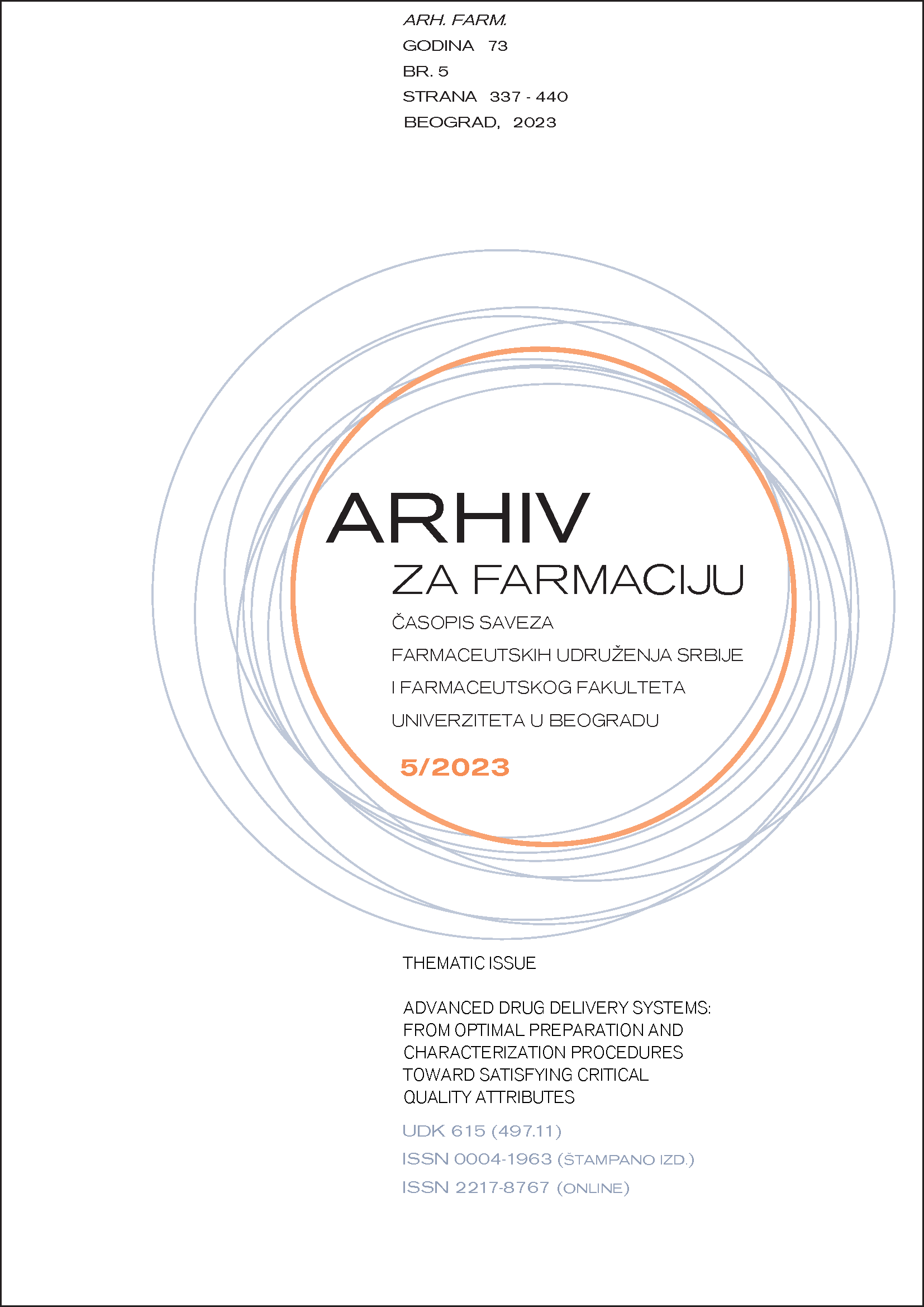
A Word from the Guest Editors
Researchers dealing with drug delivery systems encounter constant challenges and are in need of continuous exchange of knowledge and experience. Whether we work with well-known active pharmaceutical ingredients (with or without repurposing intentions) or new drug candidates, the aim is to incorporate them in delivery systems able to provide enhanced drug performance. Depending on the application/administration route, certain problems may be solved by the formulation of micro- and nanostructured carriers, although conventional dosage forms may also be significantly improved with the introduction of certain innovative excipients and/or optimized preparation processes. All the mentioned advances in the formulation approach need to be properly characterized, entailing the subsequent optimization of in silico, in vitro and in vivo characterization methods, which are able to discriminate critical quality attributes.
Pharmaceutical industry has learned a number of lessons during the pandemic that is behind us, and is, hence, striving for better and faster solutions in a number of aspects. Decades-long research in nanosystems finally paid off during the development of the COVID-19 vaccines, motivating researchers all over the globe to continue developing new or improving existing types of nanocarriers. However, some of these carriers proved to be quite challenging for comprehensive characterization, often due to the self-assembling properties of some of their constituents. All the major regulatory stakeholders recognized the need to support the pharmaceutical nanotechnology research community by assembling new guidelines. But even if we put nanotechnology aside, more conventional drug dosage forms are continually being reformulated, either to enhance a certain quality (often stability), efficacy, or safety issues. In order to facilitate and accelerate the process, and provide timely lab-to-market supply of the needed medicinal products, existing characterization techniques are being upgraded and made more rapid. Rheological properties are especially important for the overall performance of a number of drug dosage forms. Therefore, fast and yet reliable protocols have been developed, assessing prospective changes in critical quality attributes.
This being said, we cordially invite you to read the special issue entitled “Advanced drug delivery systems: from optimal preparation and characterization procedures toward satisfying critical quality attributes,” carefully compiled to contain the latest information in the field.
Guest Editors
Snežana Savić, PhD, Full Professor
University of Belgrade – Faculty of Pharmacy
Department of Pharmaceutical Technology and Cosmetology
Ivana Pantelić, PhD, Associate Professor
University of Belgrade – Faculty of Pharmacy
Department of Pharmaceutical Technology and Cosmetology
